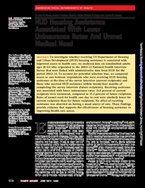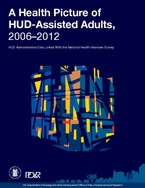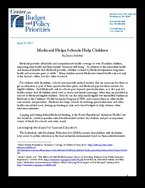Found 858 resources.
0
0
0
In Tacoma, Washington, and other U.S. cities, housing departments are collaborating with school districts to give low-income and homeless students a leg up.
Topics: CLPHA, Education, Housing, Pacific Northwest, Partnerships, Place-based, Stability
 Shared by Abra Lyons-Warren
on Sep 7, 2017
Shared by Abra Lyons-Warren
on Sep 7, 2017 0
0
0
Children may love the carefree days of summer, but many parents and educators often worry about the summer break from school. Why? Because, according to the Campaign for Grade-Level Reading and the National Summer Learning Association, students from low-income families lose an average of more than two months in reading achievement during the summer. This serious loss of previously learned skills is called the “summer slide.” What can be done to help maintain academic achievement over the summer for all children?
Topics: Education
 Shared by Rebecca Friendly
on Aug 16, 2017
Shared by Rebecca Friendly
on Aug 16, 2017 0
0
0
The doctor’s office is moving into the kitchen.
After years of telling patients to skip junk food and prepare homemade meals, a growing number of doctors and medical groups are now going a step further and teaching them how to cook. Some are building teaching kitchens or creating food pantries right next to their practices. Others are prescribing culinary education programs in hopes of improving their patients’ nutrition and overall health. Some medical schools have even introduced culinary curriculums to train more doctors to talk to patients about food.
Topics: Health, Nutrition
 Shared by Abra Lyons-Warren
on Aug 11, 2017
Shared by Abra Lyons-Warren
on Aug 11, 2017 0
0
0
This report aims to bridge a knowledge gap between the affordable housing and healthcare fields that limits their ability to implement health and housing projects and partnerships. These two sectors have begun to realize how much they overlap, but while great work has been done to expose practitioners in both fields to information about their shared interests and common goals, the results to date have been relatively modest.
Topics: Cost effectiveness, Dual-eligibles, Health, Housing, Partnerships
 Shared by Abra Lyons-Warren
on Aug 10, 2017
Shared by Abra Lyons-Warren
on Aug 10, 2017 0
0
0

Topics: CLPHA, Data sharing, Education, Housing, Low-income, Pacific Northwest, Partnerships, West Coast
 Shared by CLPHA Admin
on Jul 19, 2017
Shared by CLPHA Admin
on Jul 19, 2017 0
0
0

Topics: CLPHA, Education, Housing, Low-income, Partnerships, Post-secondary, West Coast, Workforce development, Youth
 Shared by CLPHA Admin
on Jul 19, 2017
Shared by CLPHA Admin
on Jul 19, 2017 0
0
0

Topics: CLPHA, Education, Health, Housing, Low-income, Midwest, Partnerships
 Shared by CLPHA Admin
on Jul 19, 2017
Shared by CLPHA Admin
on Jul 19, 2017 0
0
0

Topics: CLPHA, Education, Housing, Midwest, Partnerships
 Shared by CLPHA Admin
on Jul 19, 2017
Shared by CLPHA Admin
on Jul 19, 2017 0
0
0
These case studies provide a framework for implementing
or replicating promising approaches to use two-generation initiatives
specifically with housing authority residents as means to improve
life outcomes. This report features communities in San Antonio, Texas and
Durham, North Carolina to examine the key components of two-generation
initiatives: social capital; early childhood education;
post-secondary education and workforce development; economic
assets; and health and well-being.
Topics: Child welfare, Dual-generation, Early childhood, Education, Family engagement, Housing, Partnerships, Place-based, South, Workforce development
 Shared by Abra Lyons-Warren
on Jul 18, 2017
Shared by Abra Lyons-Warren
on Jul 18, 2017 0
0
0
Alan E. Simon, Andrew Fenelon, Veronica Helms, Patricia C. Lloyd and Lauren M. Rossen, Health Affairs, 36, NO. 6 (June 2017): 1016–1023
Topics: Health, Medicaid / Medicare
 Shared by Steve Lucas
on Jun 22, 2017
Shared by Steve Lucas
on Jun 22, 2017 0
0
0
Unprecedented descriptive analysis linking HUD administrative data and results from the National Health Interview Survey (pre-Affordable Care Act)
Topics: Affordable Care Act, Cost effectiveness, Dental, Depression, Exercise, Health, Healthy homes, Housing, Medicaid / Medicare, Mental health, Nutrition, Obesity, Research, Seniors, Smoke-free, Substance abuse
 Shared by Steve Lucas
on Jun 22, 2017
Shared by Steve Lucas
on Jun 22, 2017 0
0
0
CSH reviewed more than 32 studies of supportive housing and compiled information about outcomes (housing, healthcare, and more). These reviews should be helpful for anyone looking to quantify particular impacts of housing. Please note that this review was not undertaken in an academic or systematic way; we make no claims about the strength of these evaluations or their findings.
Topics: Health, Healthy homes, Homelessness, Housing, Supportive housing
 Shared by Steve Lucas
on Jun 8, 2017
Shared by Steve Lucas
on Jun 8, 2017 0
0
0
A multi-faceted technical assistance resource for Public Housing Agencies and their partners who want to end homelessness. The Tookit is organized into five main sections: (1) Housing Choice Vouchers, (2) Public Housing, (3) Project-Based Vouchers, (4) Unique PHA Programs & Initiatives, (5) Primer on Homelessness ans Supportive Housing.
Topics: Homelessness, Housing, Medicaid / Medicare, Partnerships, Substance abuse, Supportive housing
 Shared by Steve Lucas
on Jun 8, 2017
Shared by Steve Lucas
on Jun 8, 2017 0
0
0
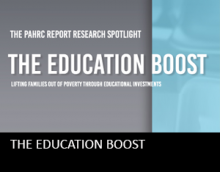
Topics: Education, Housing, Low-income, Post-secondary, Research, Workforce development
 Shared by Keely Stater
on Jun 6, 2017
Shared by Keely Stater
on Jun 6, 2017 0
0
0
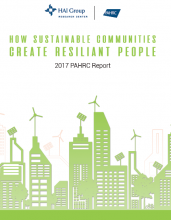
How Sustainable Communities Create Resilient People
Topics: Community development
 Shared by Keely Stater
on Jun 6, 2017
Shared by Keely Stater
on Jun 6, 2017 0
1
1
Financial Incentive Offered to Multifamily Borrowers Incorporating Healthy Design Features in Affordable Housing
Topics: Health, Healthy homes
 Shared by Steve Lucas
on May 25, 2017
Shared by Steve Lucas
on May 25, 2017 0
0
0
Over the past decade, new research has revealed the link between early trauma and lifelong mental health issues. These discoveries have since revolutionized social work, healthcare, and early education. Policy changes enacted in response to our understanding of the biology of trauma are prioritizing earlier interventions like nurse home visiting services for at-risk families, and an increase in pre-kindergarten programs.
This short animation by Nadja Oertelt is part of The Atlantic’s Next America: Early Childhood project, which is supported by grants from the Annie E. Casey Foundation and...
Topics: Child welfare, Cost effectiveness, Early childhood, Home visiting, Mental health, Research
 Shared by Abra Lyons-Warren
on May 22, 2017
Shared by Abra Lyons-Warren
on May 22, 2017 0
1
1
State by State Chart
Topics: Early childhood
 Shared by Marsha Basloe
on May 4, 2017
Shared by Marsha Basloe
on May 4, 2017 0
2
2
Suggestions for making supportive housing, both scattered site and single site, safe and developmentally appropriate for infants, toddlers, and preschoolers.
Topics: Early childhood
 Shared by Marsha Basloe
on May 4, 2017
Shared by Marsha Basloe
on May 4, 2017 0
1
1
For eligible children, Medicaid pays for the medical services schools provide to students with disabilities so they can get an education.
Topics: Child welfare, Education, Medicaid / Medicare
 Shared by Steve Lucas
on Apr 19, 2017
Shared by Steve Lucas
on Apr 19, 2017 0
0
0
How Students Get to School in Denver, Detroit, New Orleans, New York City, and Washington, DC
Topics: Education, Transportation
 Shared by Housing Is
on Mar 29, 2017
Shared by Housing Is
on Mar 29, 2017 0
0
0
In addition to detailing burdensome regulations, industry groups CLPHA, NAHRO, and PHADA raise concerns about recent MTW Notice and Comment solicitations.
Topics: Housing
 Shared by Rich Bindell
on Mar 3, 2017
Shared by Rich Bindell
on Mar 3, 2017 0
2
2

Dr. Ben Carson becomes HUD Secretary with 58 to 41 vote in the Senate
Topics: Affordable Care Act, Funding, Health, Housing, Legislation & Policy
 Shared by Steve Lucas
on Mar 2, 2017
Shared by Steve Lucas
on Mar 2, 2017 0
0
0
What's it like being a first-generation college student? Unlike most of their peers, they can't rely on the experience of parents and family to help them register for classes, fill out financial aid forms, or quickly adjust to their new lives on campus. These are the stories of several first-generation college students and graduates, and this video explores their challenges, sources of support, and recommendations for policymakers. With a third of all incoming college freshmen being first-generation, telling their stories and informing stakeholders is more important than ever.
Topics: Education, Post-secondary
 Shared by Abra Lyons-Warren
on Feb 22, 2017
Shared by Abra Lyons-Warren
on Feb 22, 2017 1
0
0
If a homeless student is worrying about where he is spending the night, it’s likely he’s not going to be thinking much about his homework. And in one of the poorest districts in Kansas, educators have realized that to help homeless students they needed to do more to help homeless families. Special correspondent Lisa Stark of Education Week traveled to Kansas City to explore their unique program.
Topics: Education, Homelessness, Midwest
 Shared by Abra Lyons-Warren
on Feb 17, 2017
Shared by Abra Lyons-Warren
on Feb 17, 2017 
